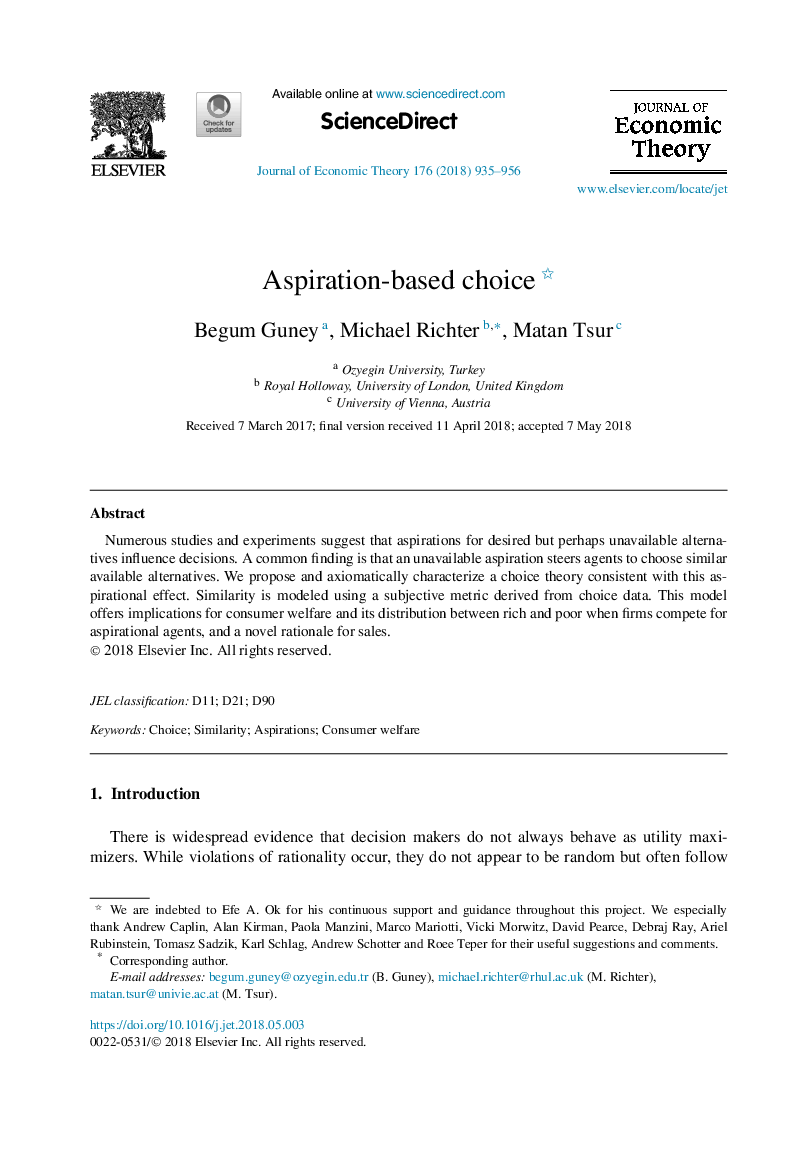| Article ID | Journal | Published Year | Pages | File Type |
|---|---|---|---|---|
| 7359180 | Journal of Economic Theory | 2018 | 22 Pages |
Abstract
Numerous studies and experiments suggest that aspirations for desired but perhaps unavailable alternatives influence decisions. A common finding is that an unavailable aspiration steers agents to choose similar available alternatives. We propose and axiomatically characterize a choice theory consistent with this aspirational effect. Similarity is modeled using a subjective metric derived from choice data. This model offers implications for consumer welfare and its distribution between rich and poor when firms compete for aspirational agents, and a novel rationale for sales.
Related Topics
Social Sciences and Humanities
Economics, Econometrics and Finance
Economics and Econometrics
Authors
Begum Guney, Michael Richter, Matan Tsur,
